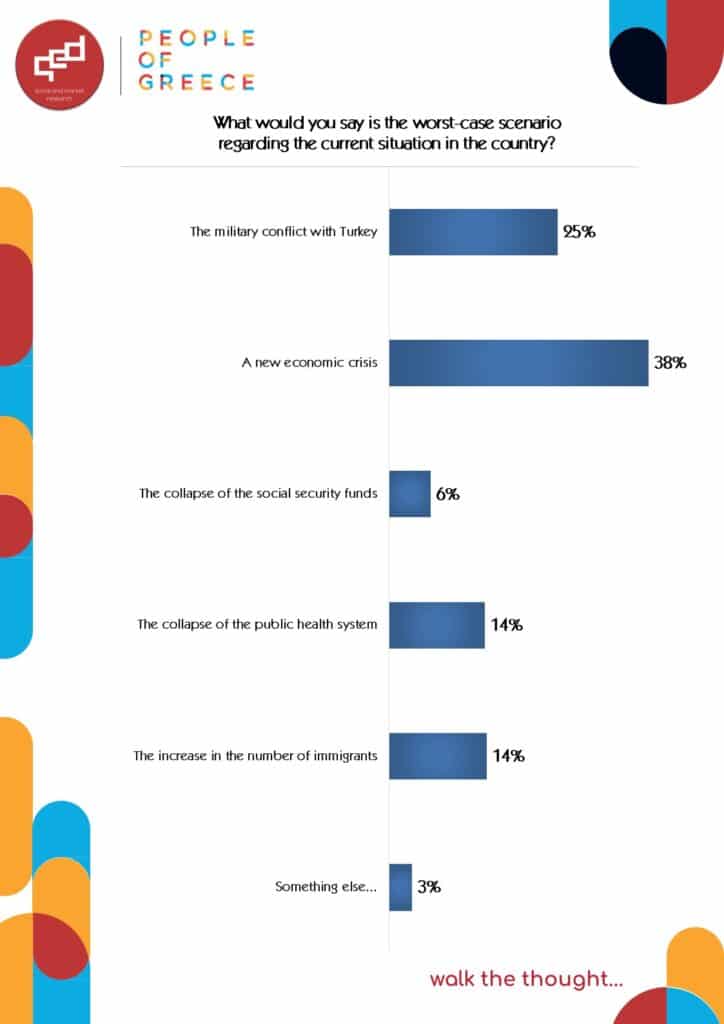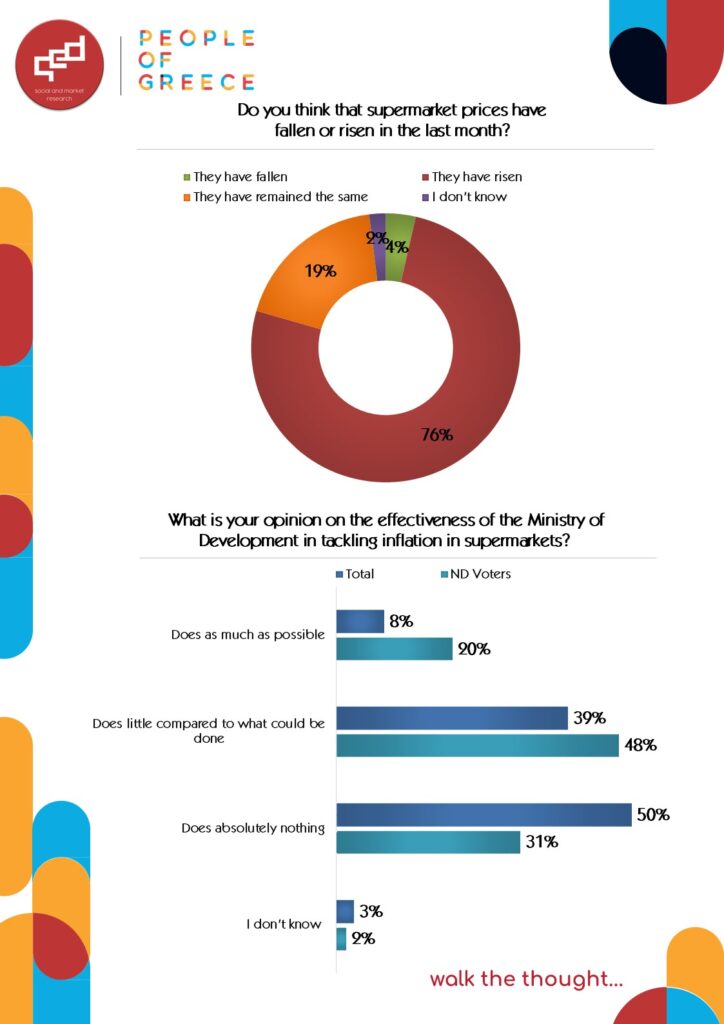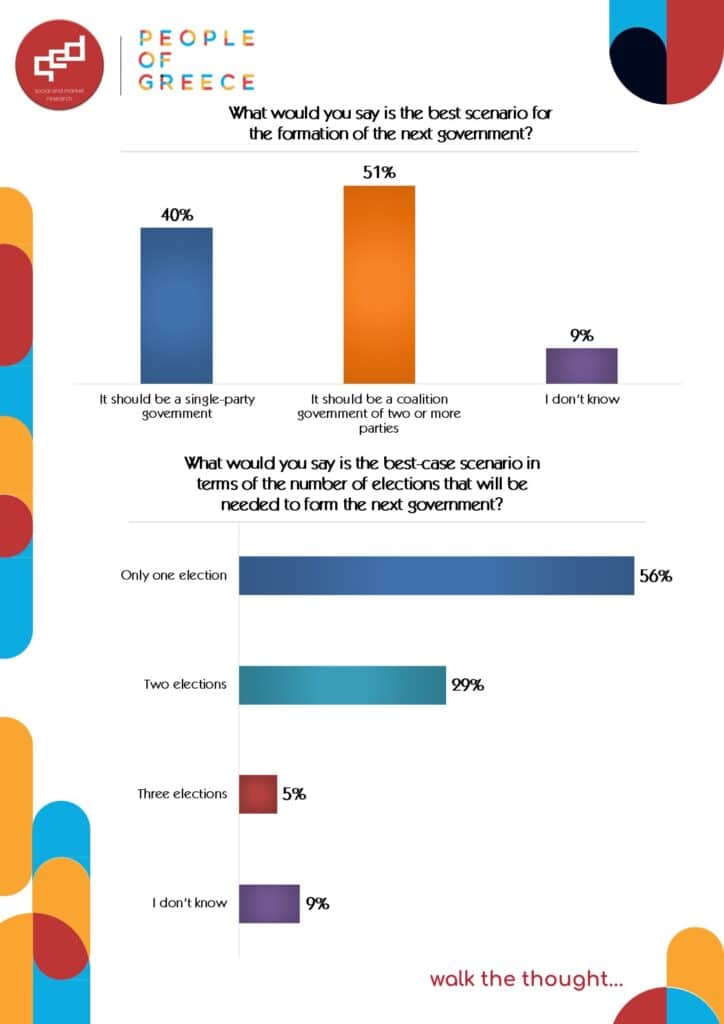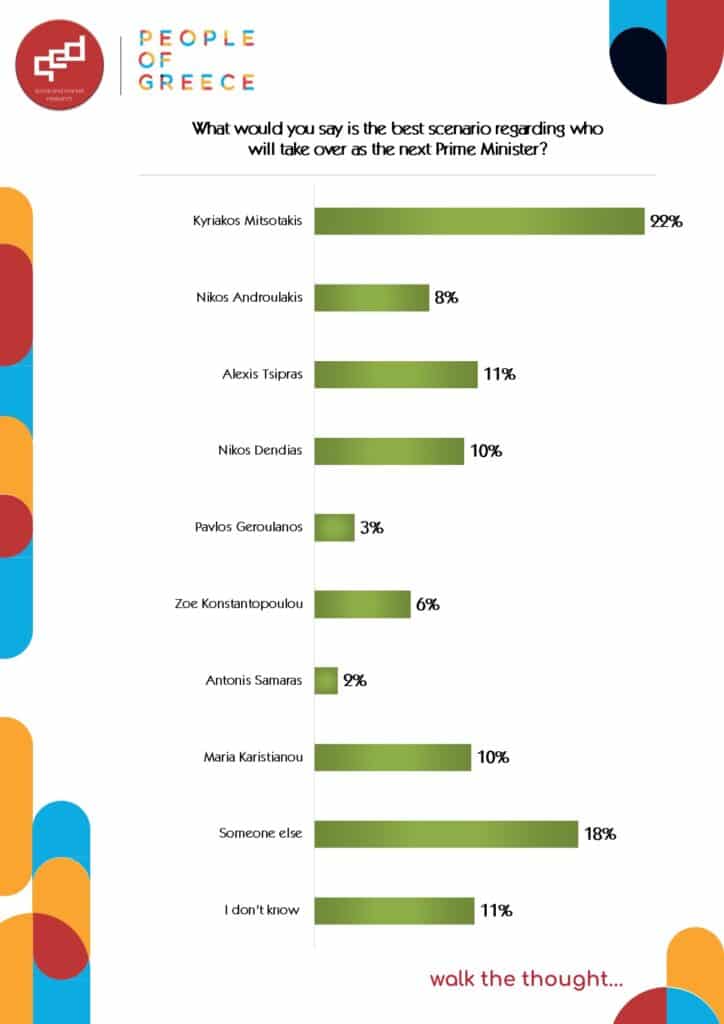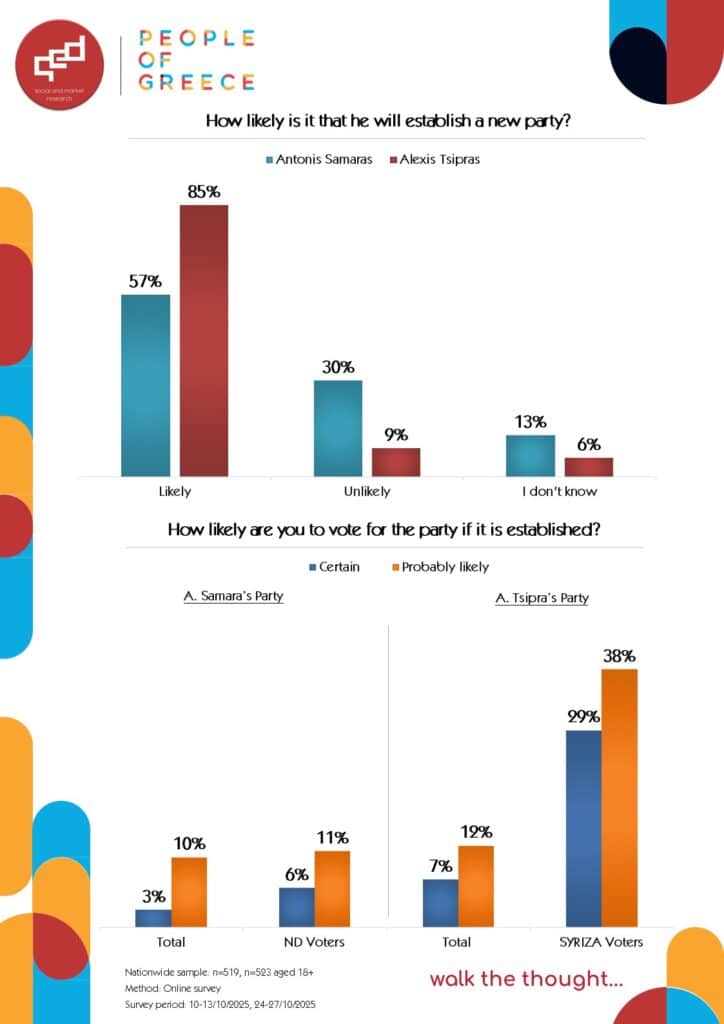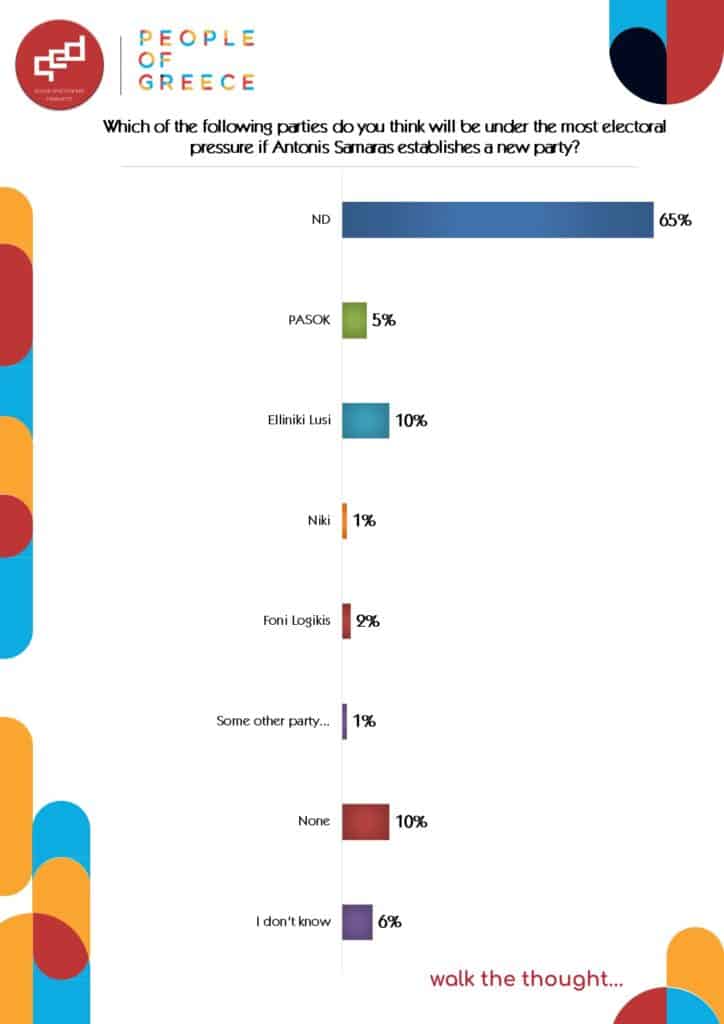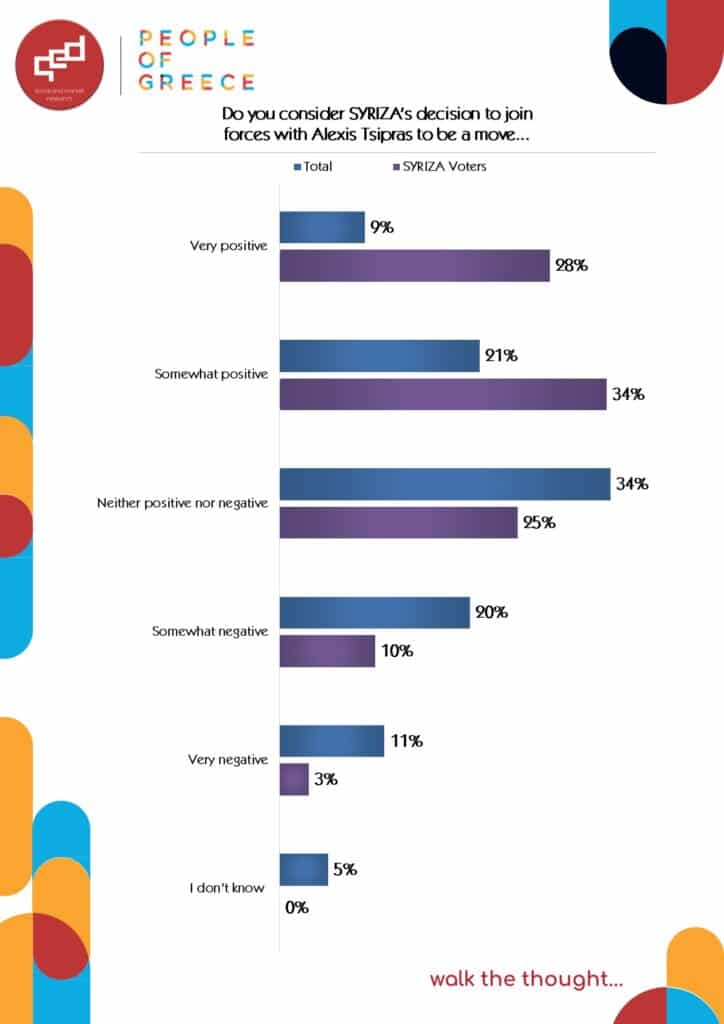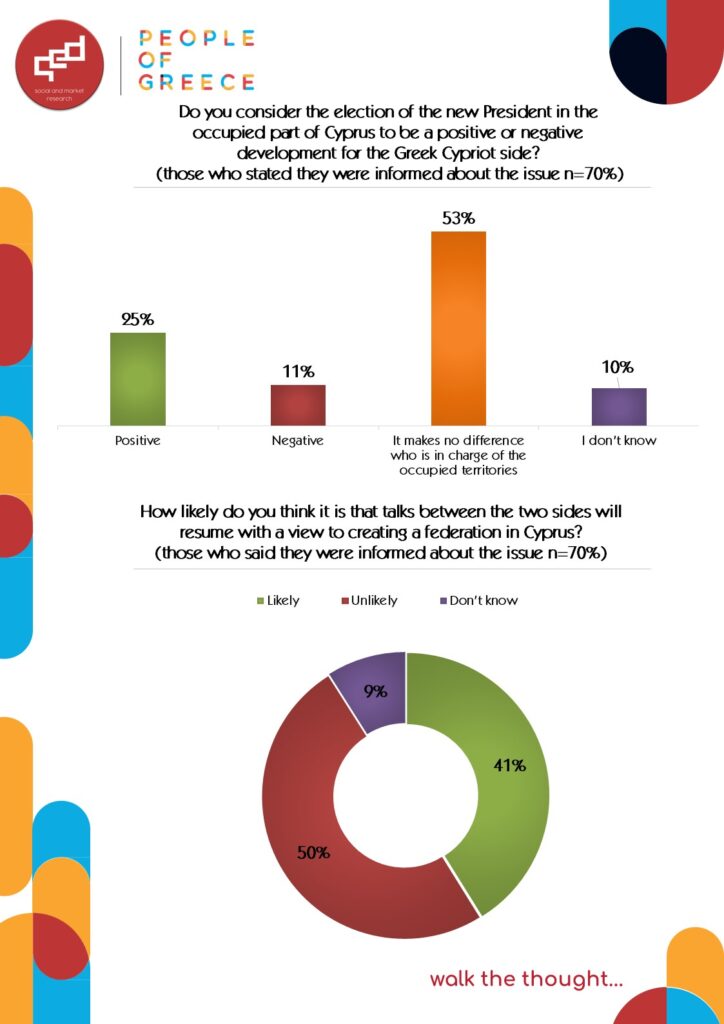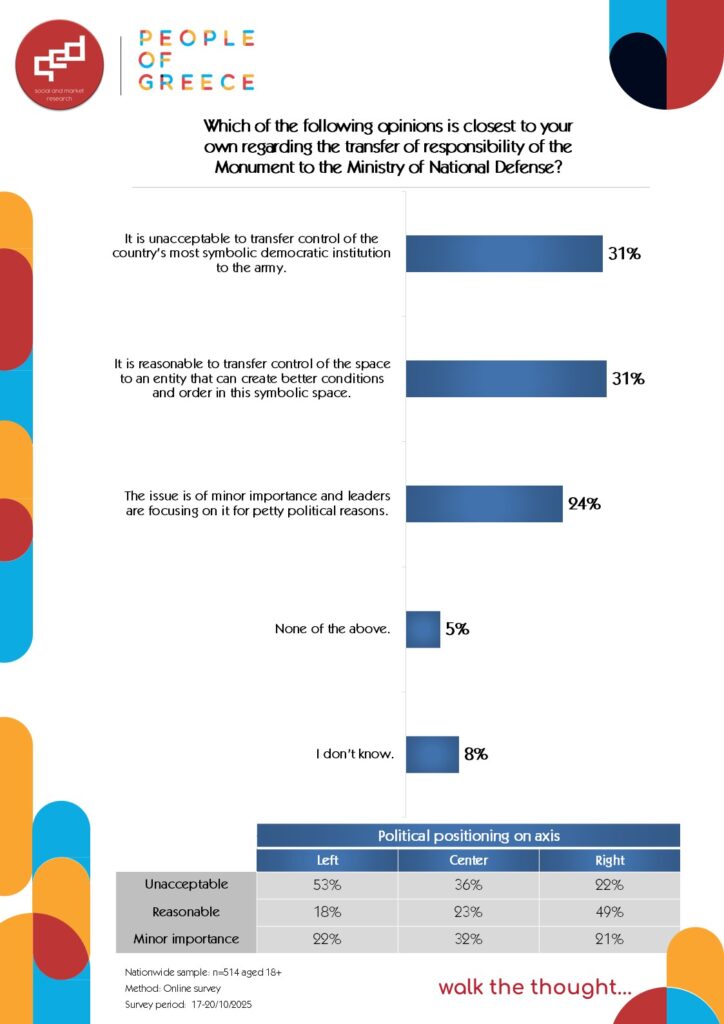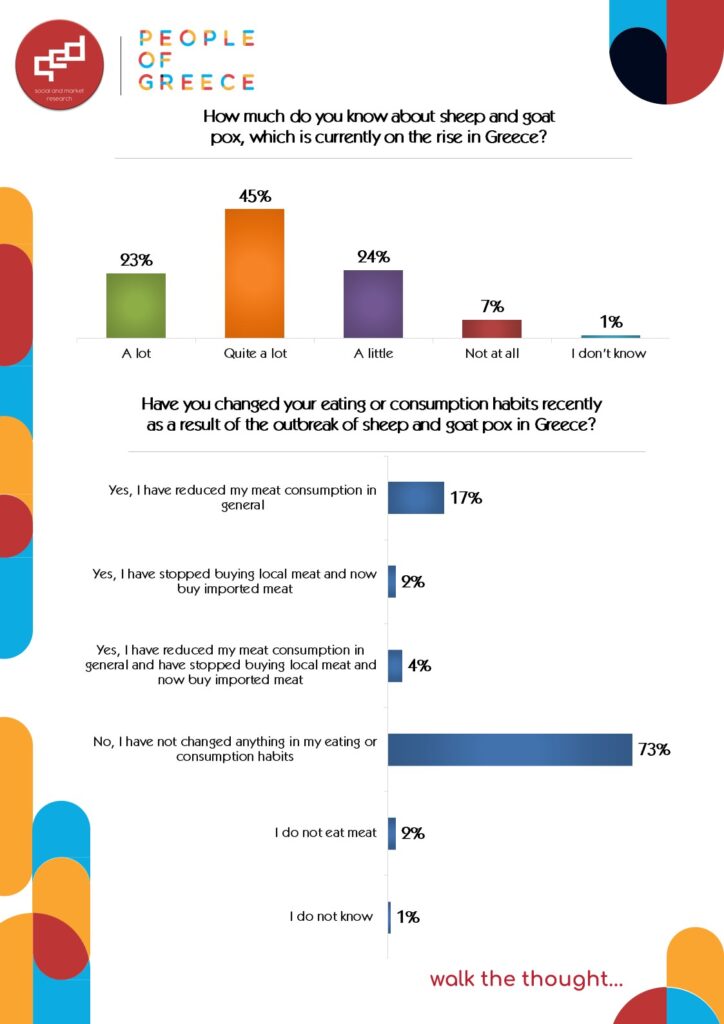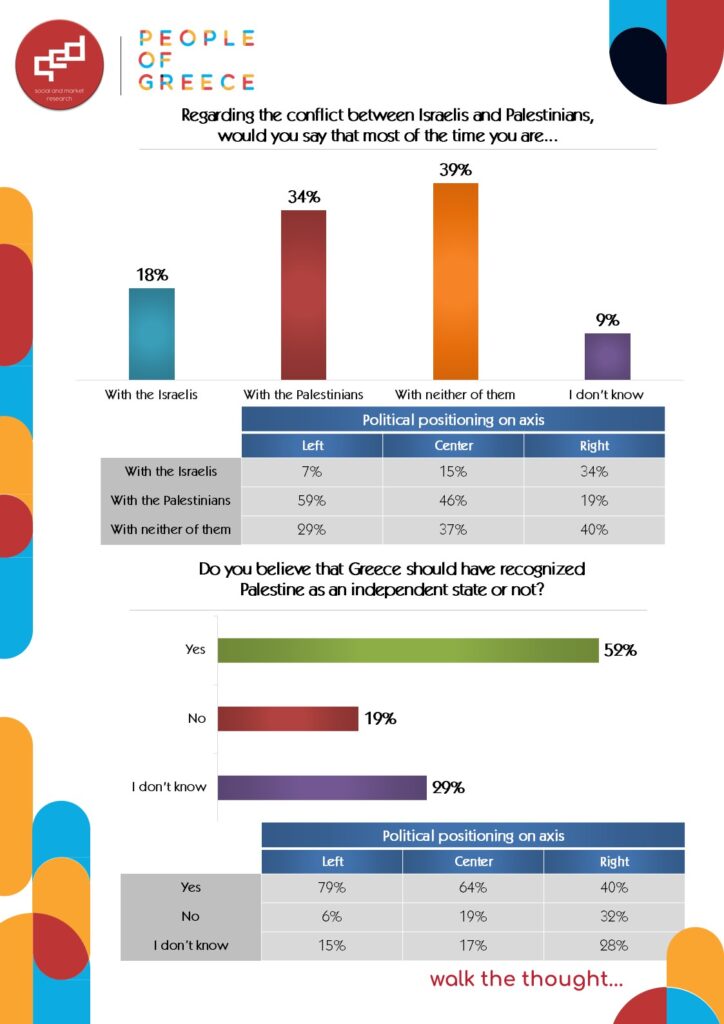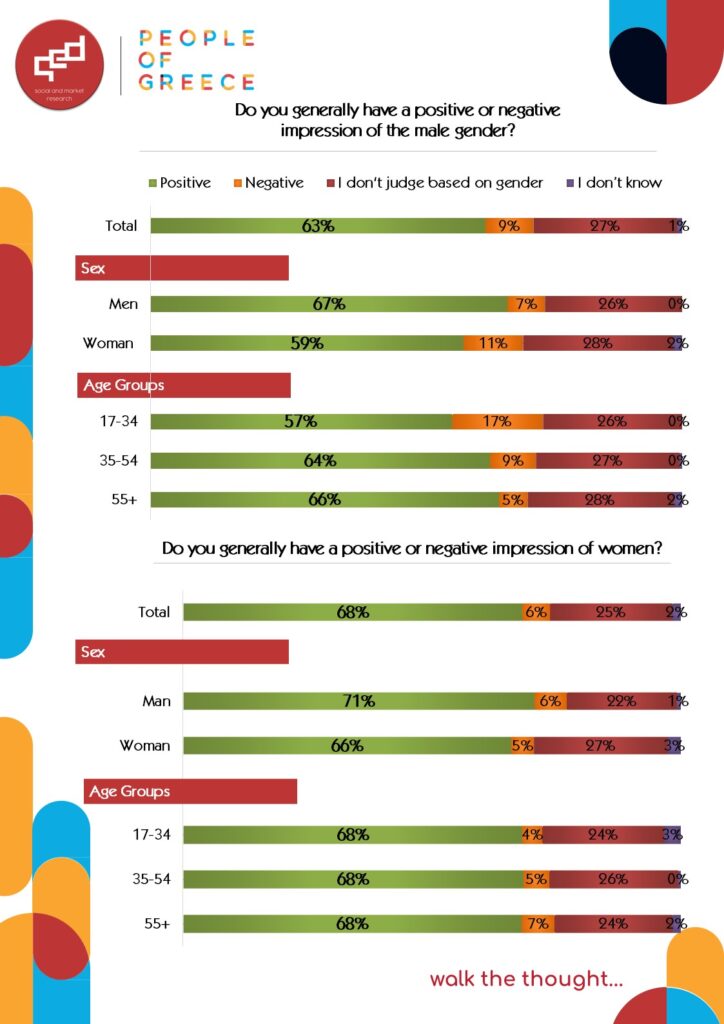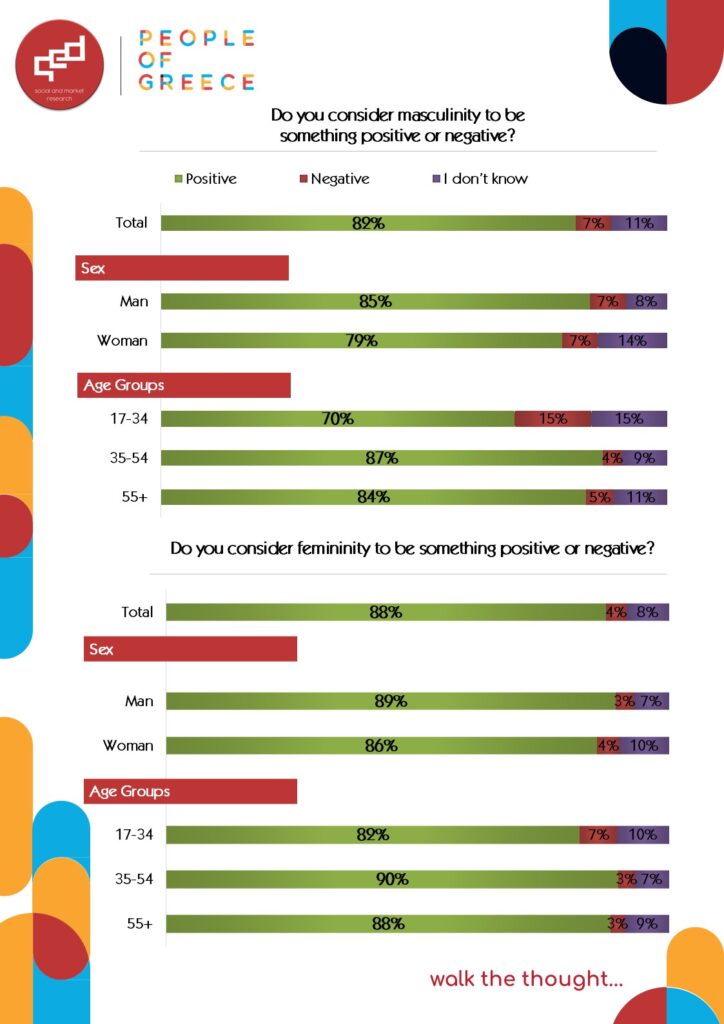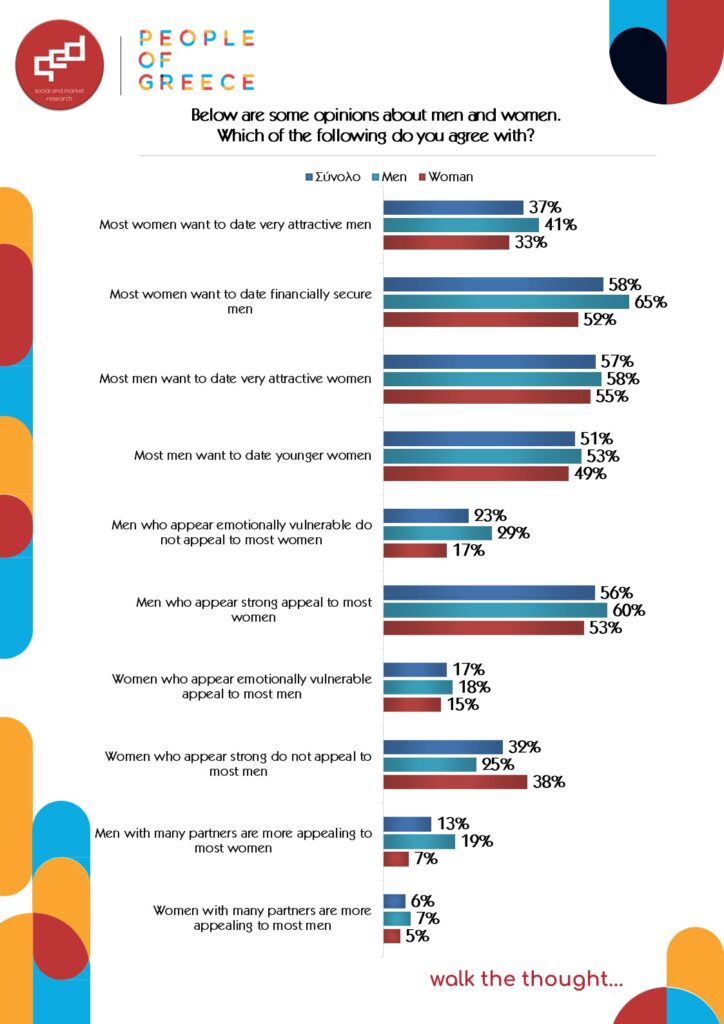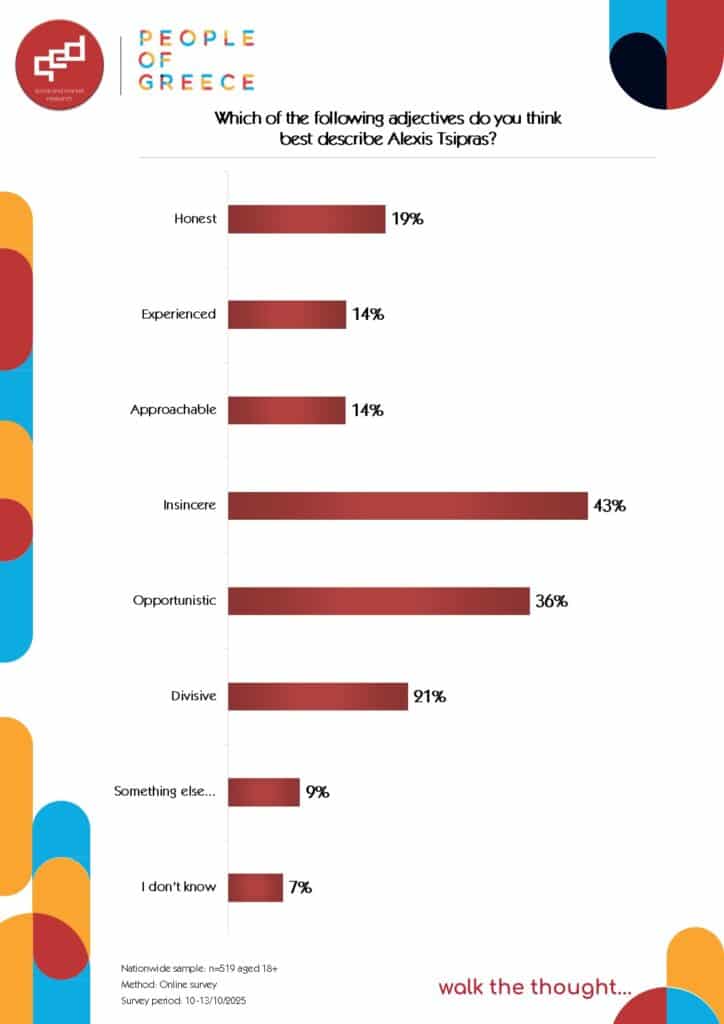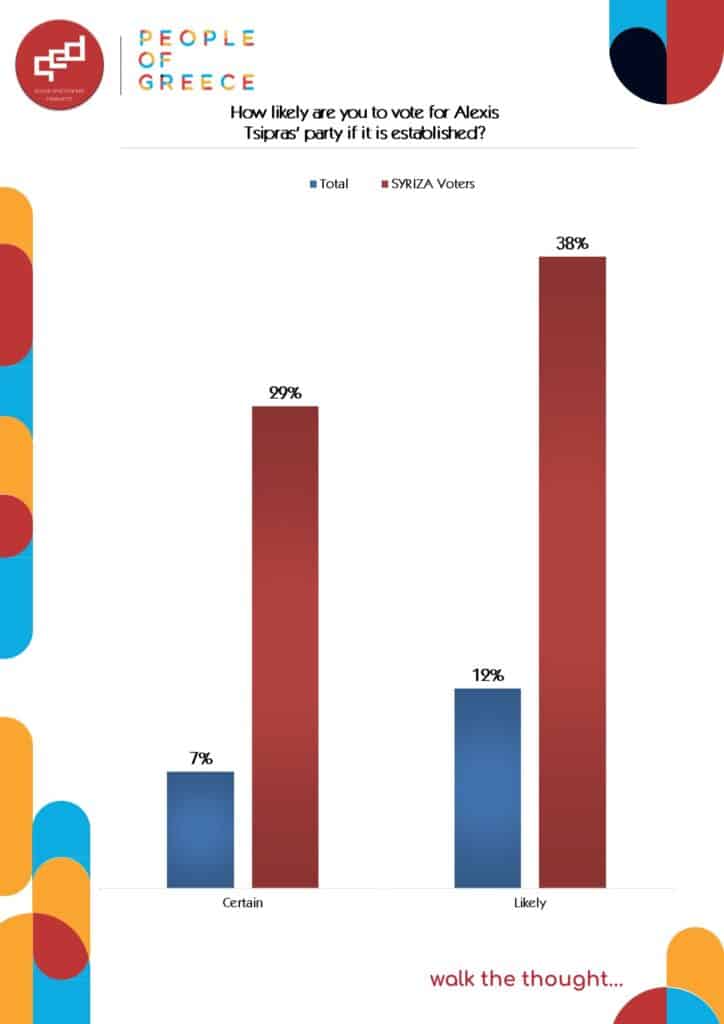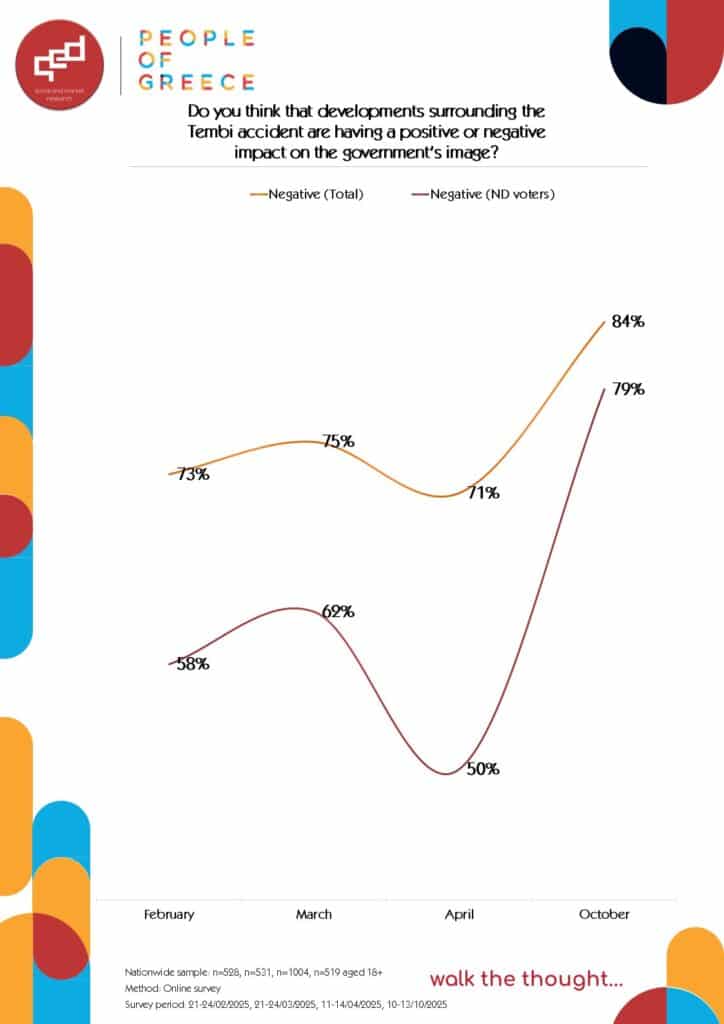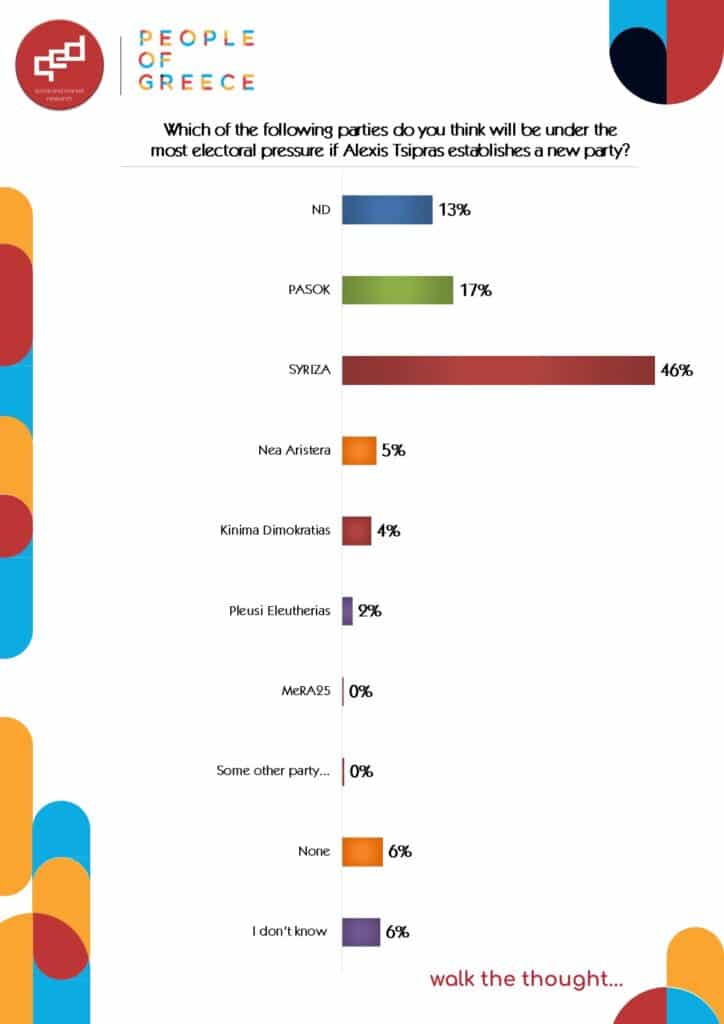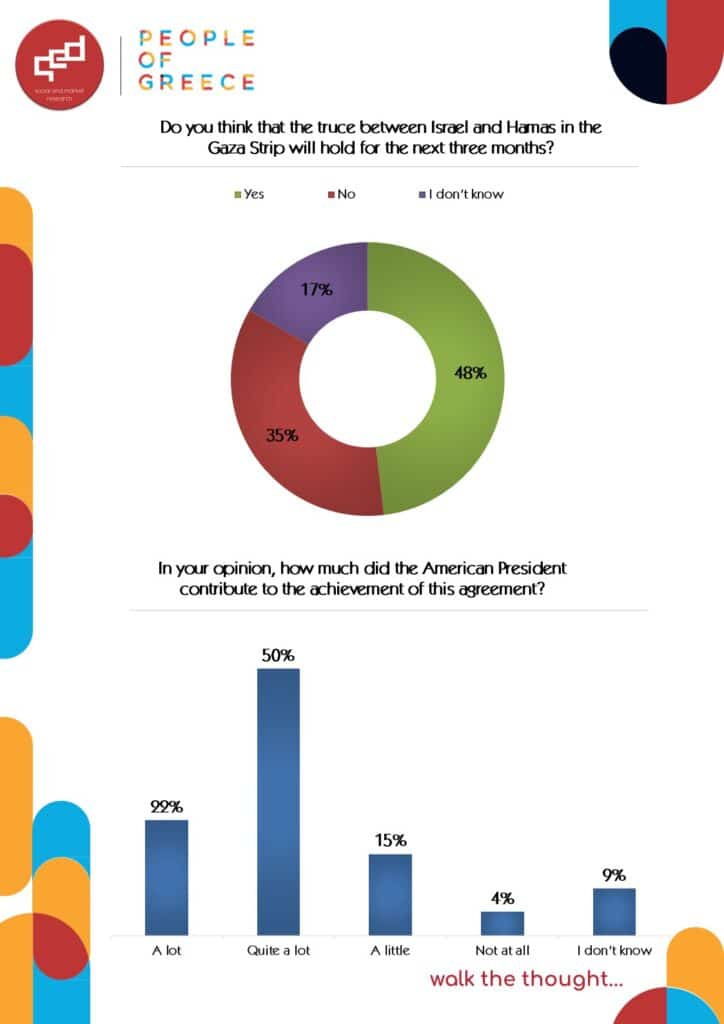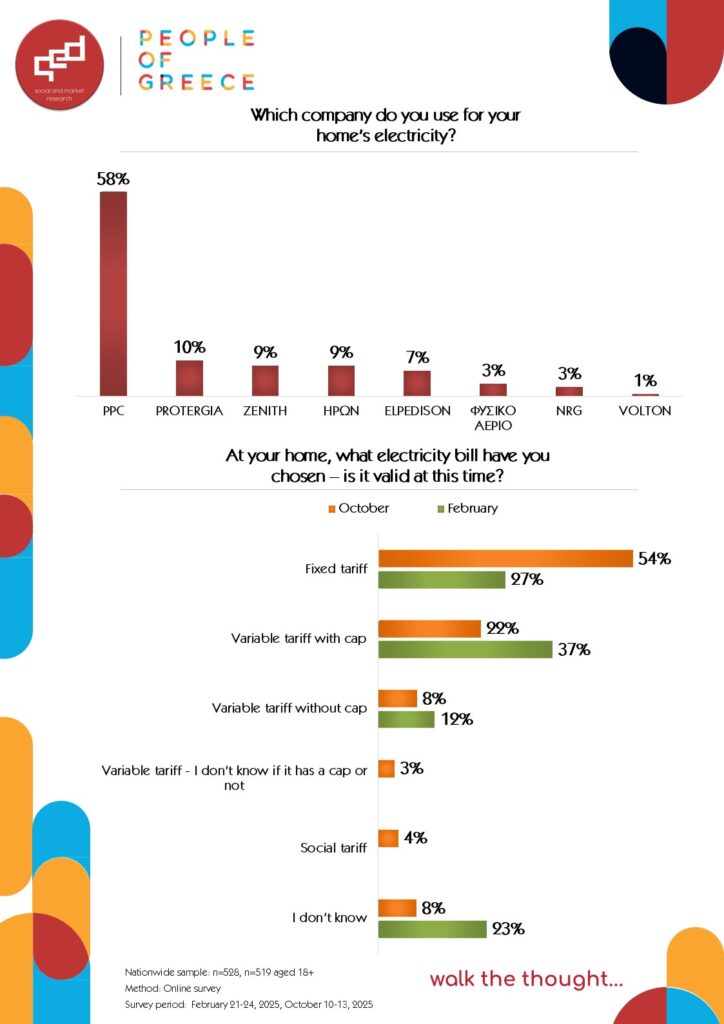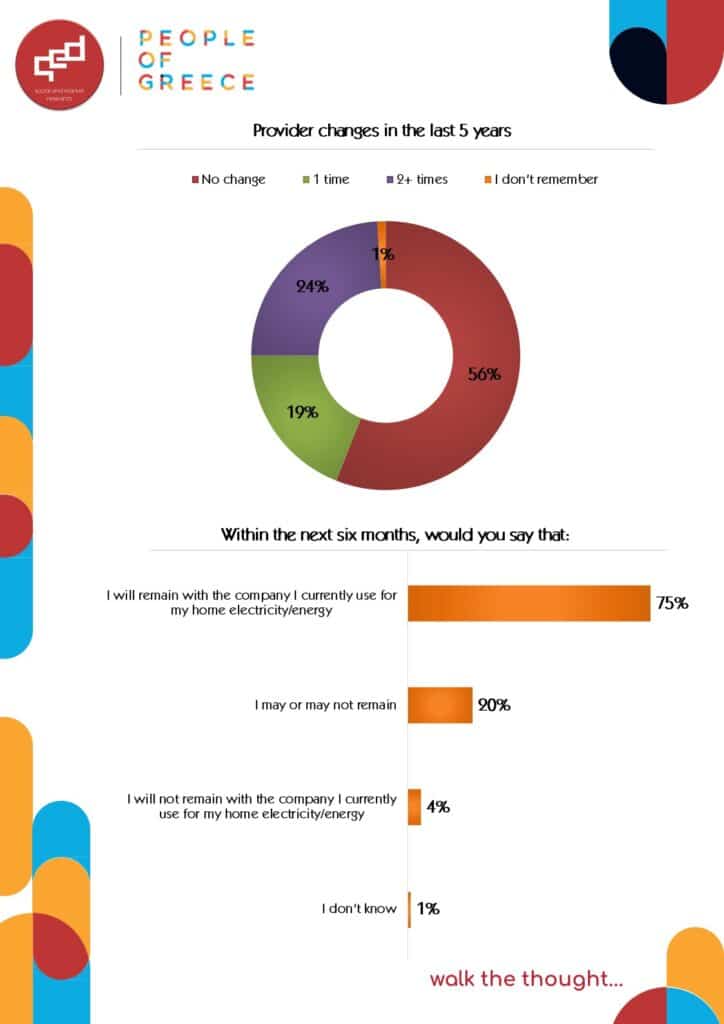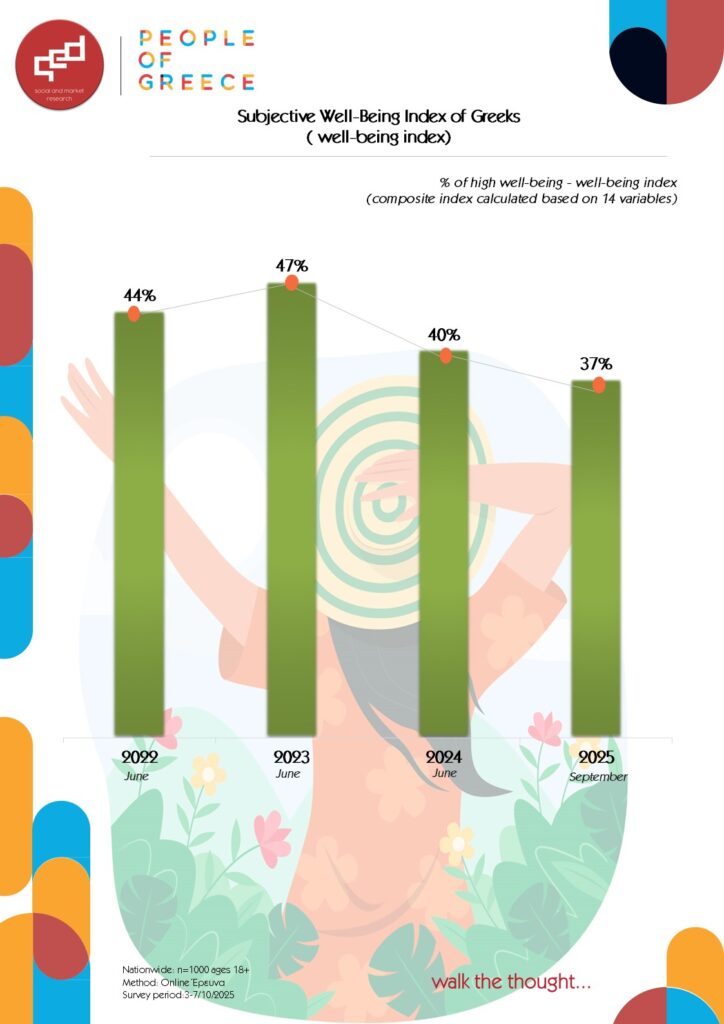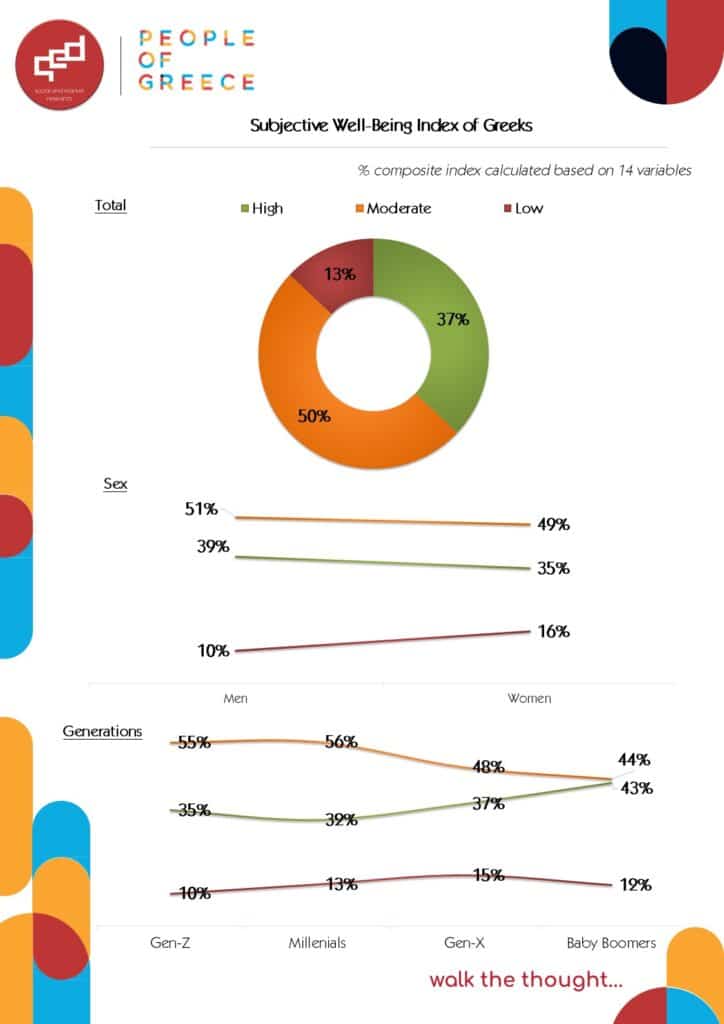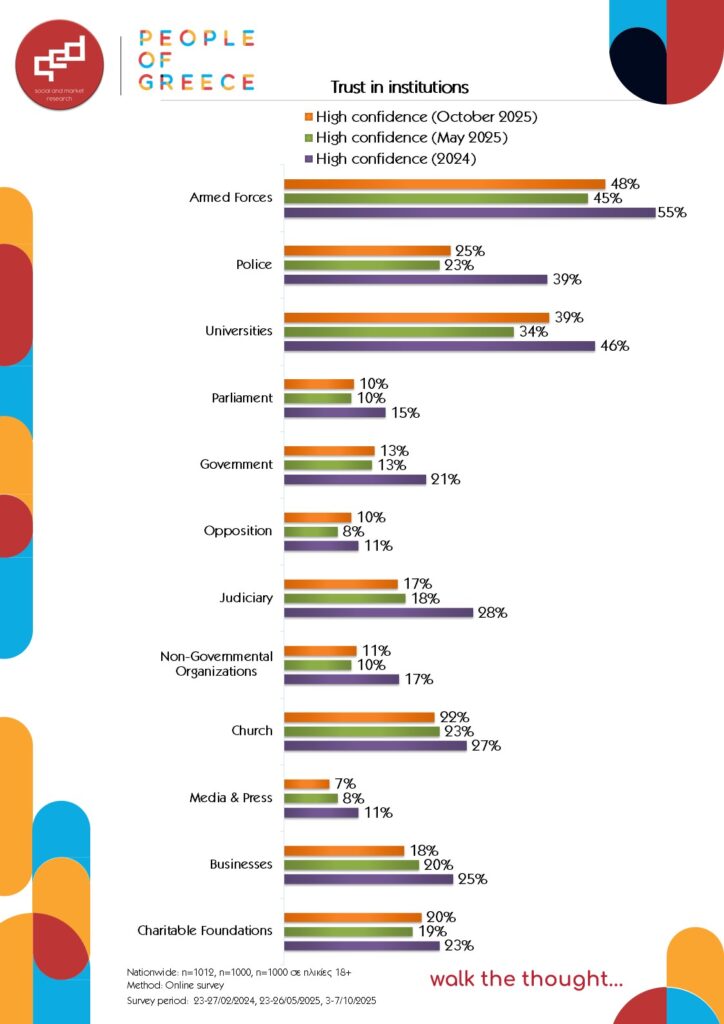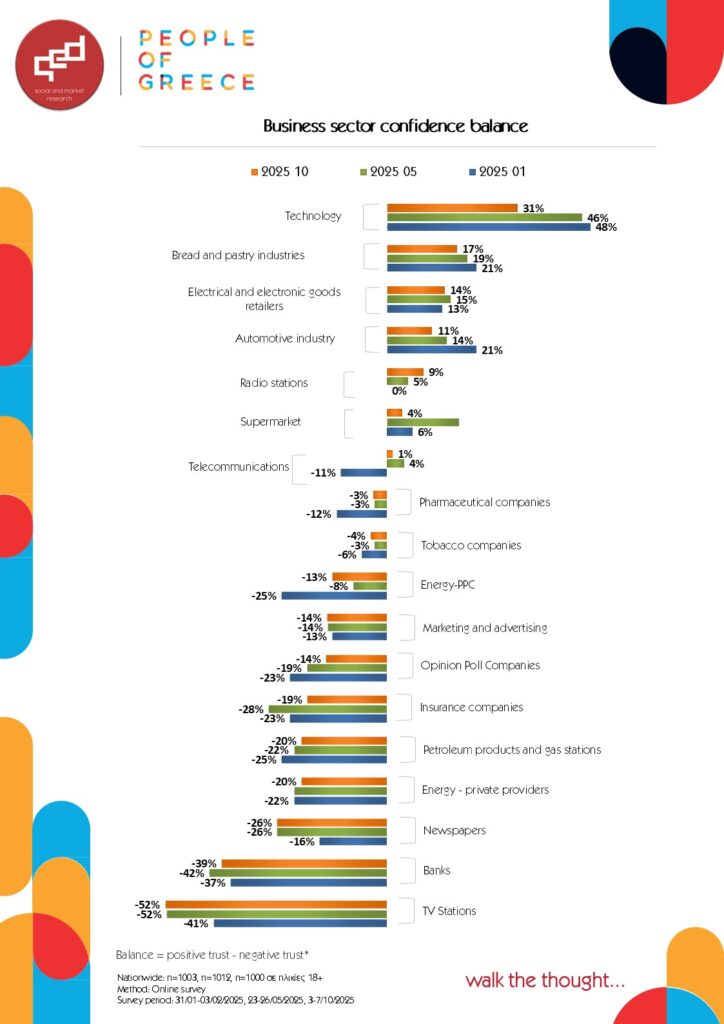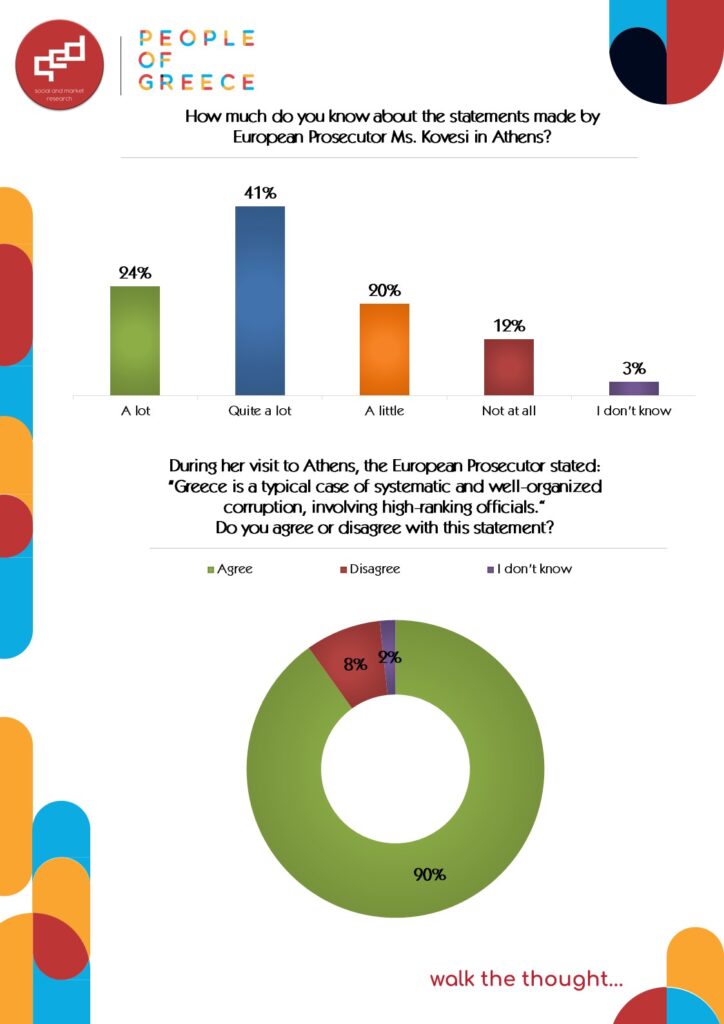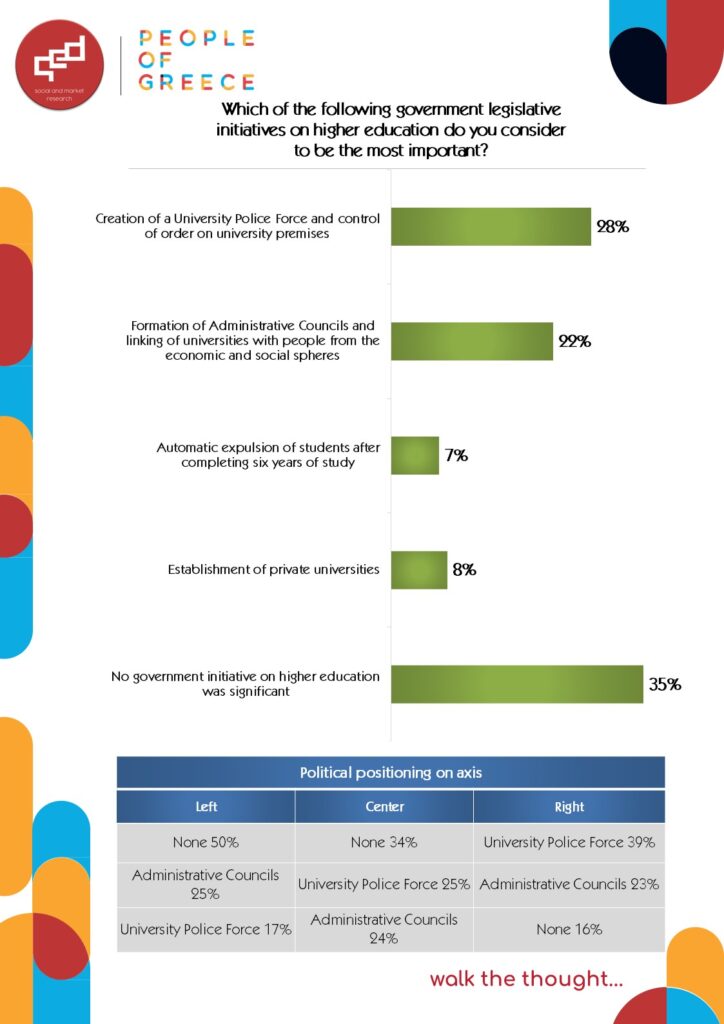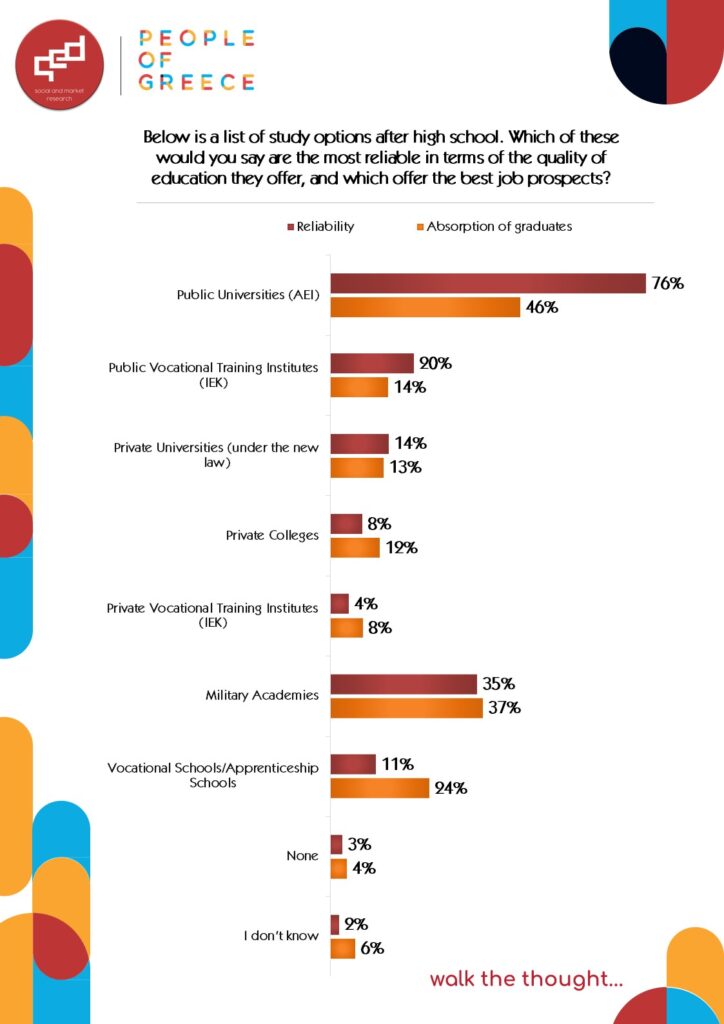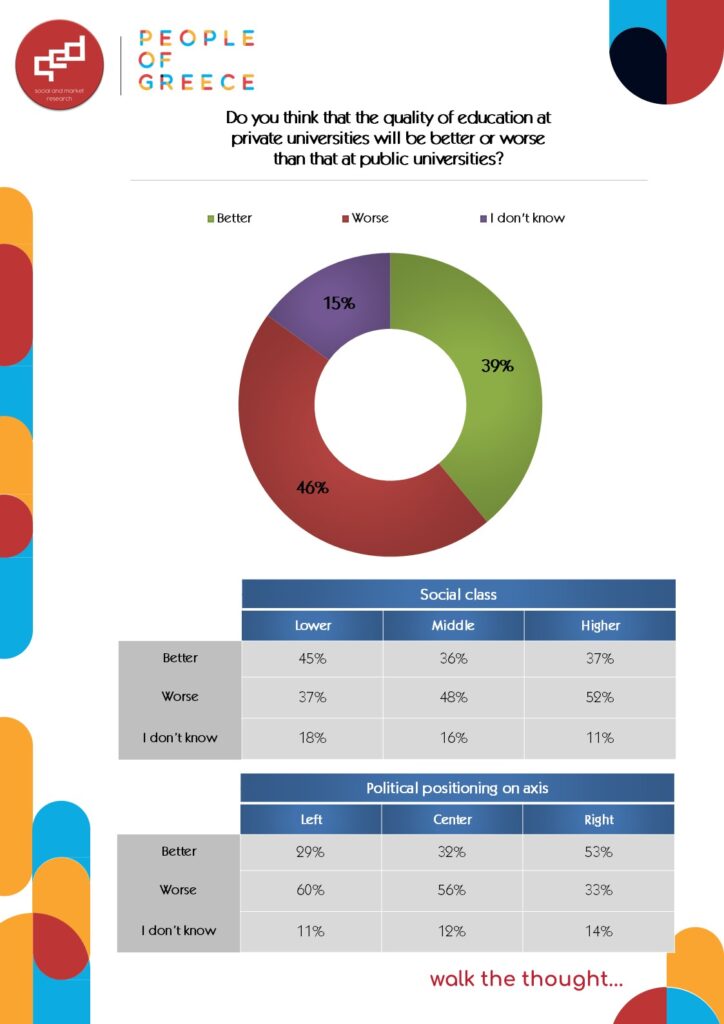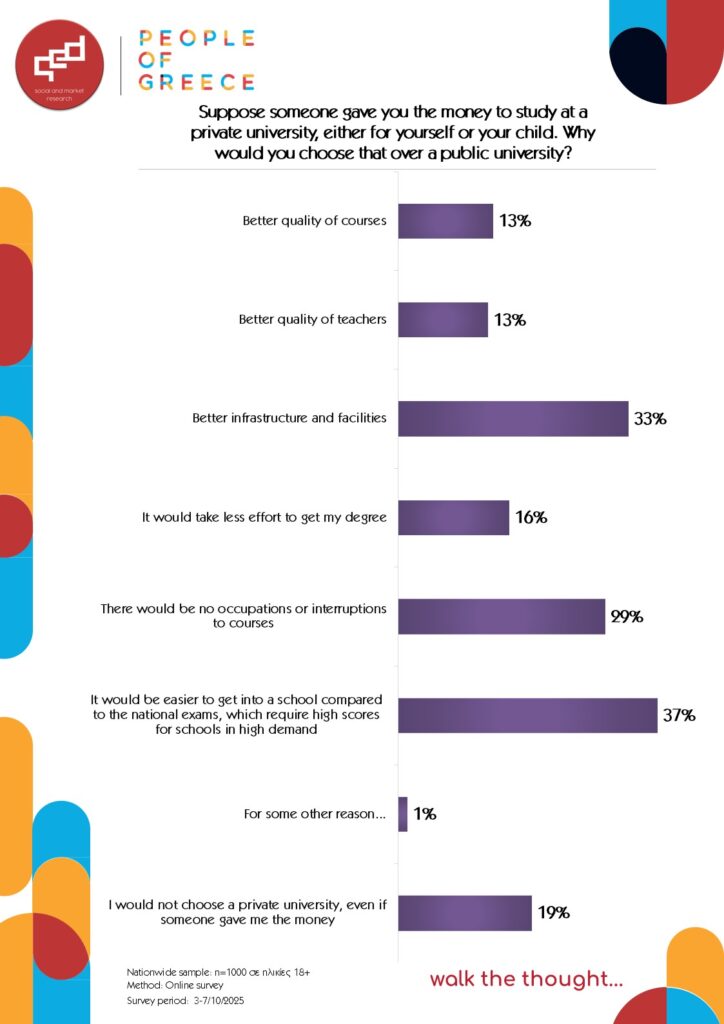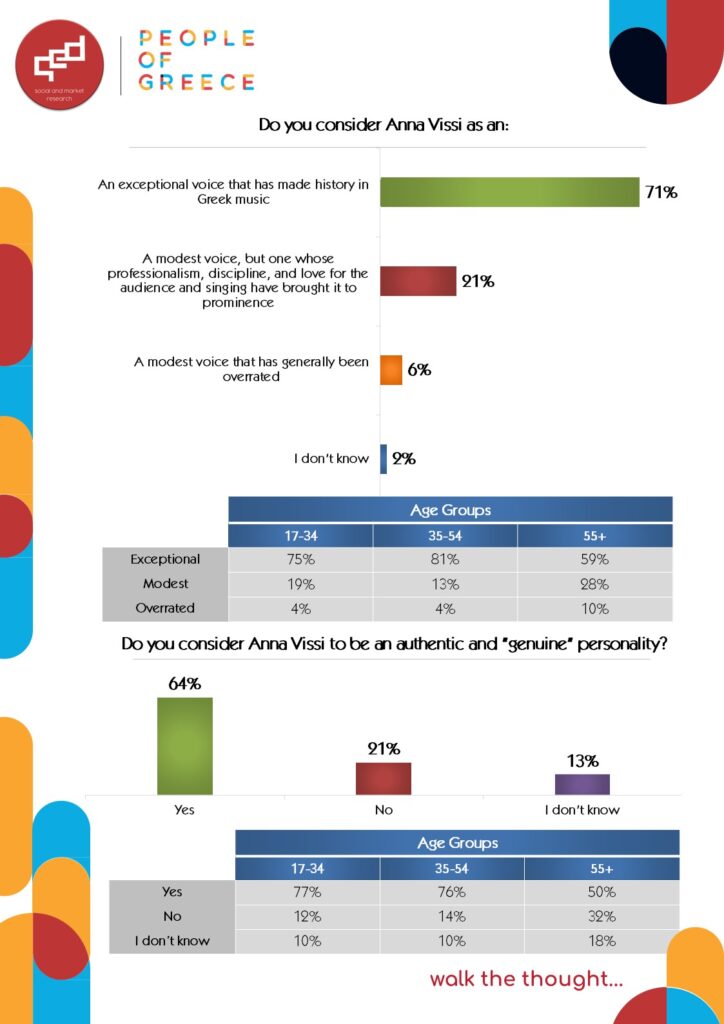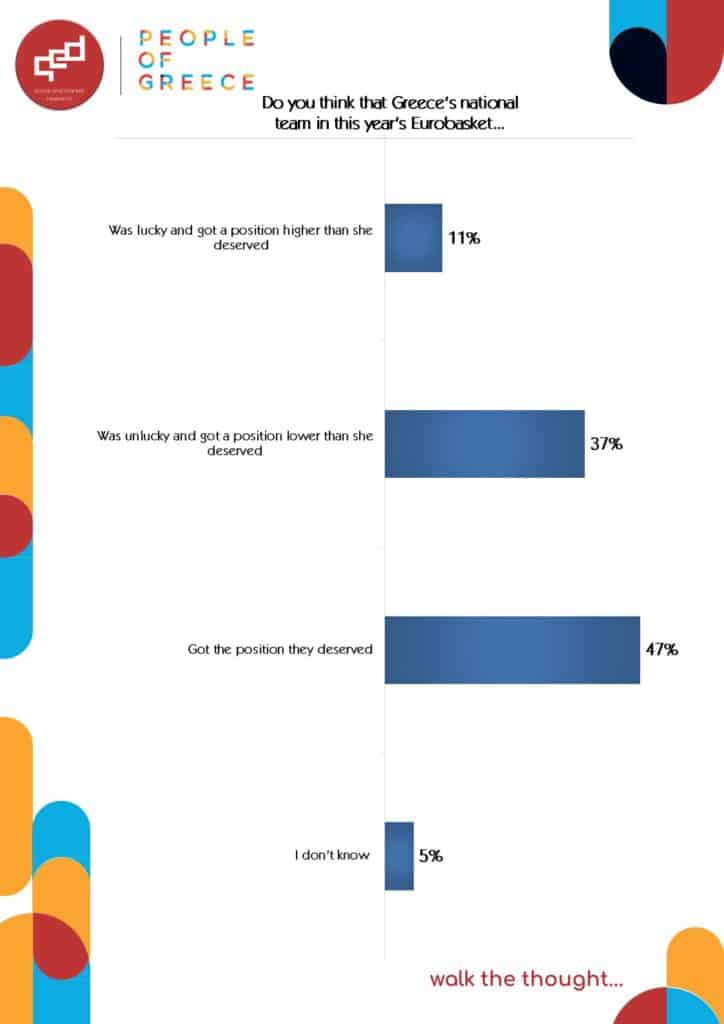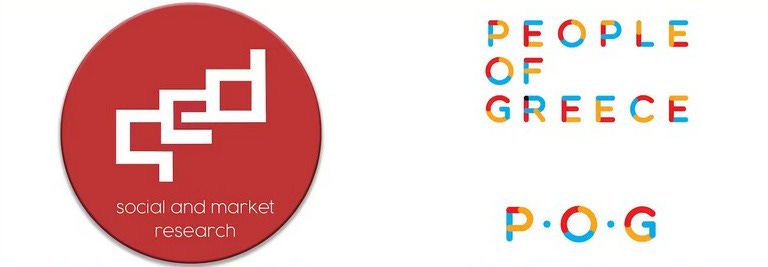
Events of the week 23-30/10:
This week, Greeks watched:
- the movements and public appearances of former Prime Minister Antonis Samaras regarding his new party,
- SYRIZA’s decision to join forces with Alexis Tsipras’ party, which is currently being formed
- the Ministry of Development’s announcement of an 8% reduction in over 2,000 supermarket product codes
- the election of a new president in the occupied territories.
In addition to the above issues, the People of Greece platform recorded: Greeks’ fears about the future, their reaction to measures against inflation, the type of government they want in the future, and who they consider to be the best prime minister.
What do we learn about Greece and the Greeks from this week’s findings?
- The fear of a new economic crisis is the number one nightmare scenario. Greeks are still living with the trauma of a decade of memoranda.
- Three out of four Greeks see increases in supermarket prices, despite government announcements of reductions, while nine out of ten believe that the state is “not doing enough.” The trauma of a decade of economic crisis will be difficult to offset with regular measures against inflation.
- The preference for a coalition government probably reflects fatigue with single-party politics and a desire for a more consensual political culture, but it is also possible that the electorate does not perceive the electoral stakes of a lack of government as significant at this point in time.
- Greeks appear politically disillusioned and without a clear leadership preference. Although Kyriakos Mitsotakis is in first place, he has relatively low approval ratings as the “best prime minister scenario” (22%). Alexis Tsipras remains a recognizable but unconvincing alternative. The presence of other figures (Dendias, Karistianos) indicates a search for new, more “neutral” or “less worn-out” personalities.
- Comparing the two potential party-building moves, by Alexis Tsipras and Antonis Samaras, both in terms of their overall and political audience, Alexis Tsipras’ momentum is clearly greater and could serve as a way out for SYRIZA supporters, while Antonis Samaras’ candidacy is more likely to cause a split within the New Democracy party.
- The potential alliance between SYRIZA – Tsipras is viewed positively by the party’s base and by one-third of Greek society.
-
Indifference to developments in the occupied territories and pessimism about the future of the Cyprus issue indicate possible fatigue with “unresolved national issues.”
What did the survey record?
